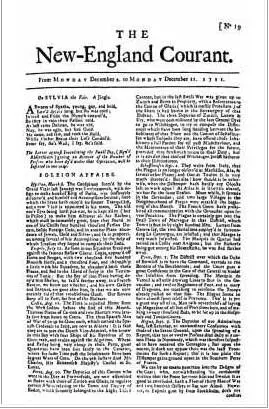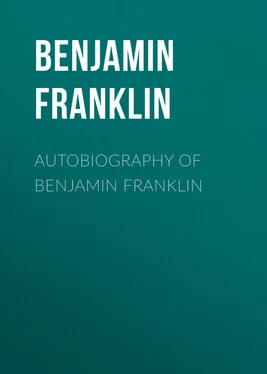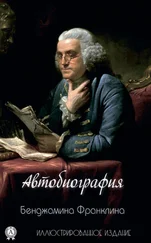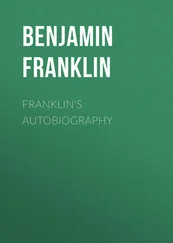Бенджамин Франклин - Autobiography of Benjamin Franklin
Здесь есть возможность читать онлайн «Бенджамин Франклин - Autobiography of Benjamin Franklin» — ознакомительный отрывок электронной книги совершенно бесплатно, а после прочтения отрывка купить полную версию. В некоторых случаях можно слушать аудио, скачать через торрент в формате fb2 и присутствует краткое содержание. Жанр: foreign_prose, foreign_antique, на английском языке. Описание произведения, (предисловие) а так же отзывы посетителей доступны на портале библиотеки ЛибКат.
- Название:Autobiography of Benjamin Franklin
- Автор:
- Жанр:
- Год:неизвестен
- ISBN:нет данных
- Рейтинг книги:4 / 5. Голосов: 1
-
Избранное:Добавить в избранное
- Отзывы:
-
Ваша оценка:
- 80
- 1
- 2
- 3
- 4
- 5
Autobiography of Benjamin Franklin: краткое содержание, описание и аннотация
Предлагаем к чтению аннотацию, описание, краткое содержание или предисловие (зависит от того, что написал сам автор книги «Autobiography of Benjamin Franklin»). Если вы не нашли необходимую информацию о книге — напишите в комментариях, мы постараемся отыскать её.
Autobiography of Benjamin Franklin — читать онлайн ознакомительный отрывок
Ниже представлен текст книги, разбитый по страницам. Система сохранения места последней прочитанной страницы, позволяет с удобством читать онлайн бесплатно книгу «Autobiography of Benjamin Franklin», без необходимости каждый раз заново искать на чём Вы остановились. Поставьте закладку, и сможете в любой момент перейти на страницу, на которой закончили чтение.
Интервал:
Закладка:
While I was intent on improving my language, I met with an English grammar (I think it was Greenwood's), at the end of which there were two little sketches of the arts of rhetoric and logic, the latter finishing with a specimen of a dispute in the Socratic 21 21 Socrates confuted his opponents in argument by asking questions so skillfully devised that the answers would confirm the questioner's position or show the error of the opponent.
method; and soon after I procur'd Xenophon's Memorable Things of Socrates, wherein there are many instances of the same method. I was charm'd with it, adopted it, dropt my abrupt contradiction and positive argumentation, and put on the humble inquirer and doubter. And being then, from reading Shaftesbury and Collins, become a real doubter in many points of our religious doctrine, I found this method safest for myself and very embarrassing to those against whom I used it; therefore I took a delight in it, practis'd it continually, and grew very artful and expert in drawing people, even of superior knowledge, into concessions, the consequences of which they did not foresee, entangling them in difficulties out of which they could not extricate themselves, and so obtaining victories that neither myself nor my cause always deserved. I continu'd this method some few years, but gradually left it, retaining only the habit of expressing myself in terms of modest diffidence; never using, when I advanced anything that may possibly be disputed, the words certainly , undoubtedly , or any others that give the air of positiveness to an opinion; but rather say, I conceive or apprehend a thing to be so and so; it appears to me, or I should think it so or so , for such and such reasons; or I imagine it to be so ; or it is so, if I am not mistaken . This habit, I believe, has been of great advantage to me when I have had occasion to inculcate my opinions, and persuade men into measures that I have been from time to time engaged in promoting; and, as the chief ends of conversation are to inform or to be informed , to please or to persuade , I wish well-meaning, sensible men would not lessen their power of doing good by a positive, assuming manner, that seldom fails to disgust, tends to create opposition, and to defeat everyone of those purposes for which speech was given to us, to wit, giving or receiving information or pleasure. For, if you would inform, a positive and dogmatical manner in advancing your sentiments may provoke contradiction and prevent a candid attention. If you wish information and improvement from the knowledge of others, and yet at the same time express yourself as firmly fix'd in your present opinions, modest, sensible men, who do not love disputation, will probably leave you undisturbed in the possession of your error. And by such a manner, you can seldom hope to recommend yourself in pleasing your hearers, or to persuade those whose concurrence you desire. Pope 22 22 Alexander Pope (1688-1744), the greatest English poet of the first half of the eighteenth century.
says, judiciously:
"Men should be taught as if you taught them not,
And things unknown propos'd as things forgot;"
farther recommending to us
"To speak, tho' sure, with seeming diffidence."
And he might have coupled with this line that which he has coupled with another, I think, less properly,
"For want of modesty is want of sense."
If you ask, Why less properly? I must repeat the lines,
"Immodest words admit of no defense,
For want of modesty is want of sense."
Now, is not want of sense (where a man is so unfortunate as to want it) some apology for his want of modesty ? and would not the lines stand more justly thus?
"Immodest words admit but this defense,
That want of modesty is want of sense."
This, however, I should submit to better judgments.
My brother had, in 1720 or 1721, begun to print a newspaper. It was the second that appeared in America, 23 23 Franklin's memory does not serve him correctly here. The Courant was really the fifth newspaper established in America, although generally called the fourth, because the first, Public Occurrences , published in Boston in 1690, was suppressed after the first issue. Following is the order in which the other four papers were published: Boston News Letter , 1704; Boston Gazette , December 21, 1719; The American Weekly Mercury , Philadelphia, December 22, 1719; The New England Courant , 1721.
and was called the New England Courant. The only one before it was the Boston News-Letter. I remember his being dissuaded by some of his friends from the undertaking, as not likely to succeed, one newspaper being, in their judgment, enough for America. At this time (1771) there are not less than five-and-twenty. He went on, however, with the undertaking, and after having worked in composing the types and printing off the sheets, I was employed to carry the papers thro' the streets to the customers.

First page of The New England Courant of Dec. 4-11, 1721. Reduced about one-third. From a copy in the Library of the Massachusetts Historical Society
He had some ingenious men among his friends, who amus'd themselves by writing little pieces for this paper, which gain'd it credit and made it more in demand, and these gentlemen often visited us. Hearing their conversations, and their accounts of the approbation their papers were received with, I was excited to try my hand among them; but, being still a boy, and suspecting that my brother would object to printing anything of mine in his paper if he knew it to be mine, I contrived to disguise my hand, and, writing an anonymous paper, I put it in at night under the door of the printing-house. It was found in the morning, and communicated to his writing friends when they call'd in as usual. They read it, commented on it in my hearing, and I had the exquisite pleasure of finding it met with their approbation, and that, in their different guesses at the author, none were named but men of some character among us for learning and ingenuity. I suppose now that I was rather lucky in my judges, and that perhaps they were not really so very good ones as I then esteem'd them.
Encourag'd, however, by this, I wrote and conveyed in the same way to the press several more papers which were equally approv'd; and I kept my secret till my small fund of sense for such performances was pretty well exhausted, and then I discovered 24 24 Disclosed.
it, when I began to be considered a little more by my brother's acquaintance, and in a manner that did not quite please him, as he thought, probably with reason, that it tended to make me too vain. And, perhaps, this might be one occasion of the differences that we began to have about this time. Though a brother, he considered himself as my master, and me as his apprentice, and, accordingly, expected the same services from me as he would from another, while I thought he demean'd me too much in some he requir'd of me, who from a brother expected more indulgence. Our disputes were often brought before our father, and I fancy I was either generally in the right, or else a better pleader, because the judgment was generally in my favor. But my brother was passionate, and had often beaten me, which I took extreamly amiss; and, thinking my apprenticeship very tedious, I was continually wishing for some opportunity of shortening it, which at length offered in a manner unexpected.
Интервал:
Закладка:
Похожие книги на «Autobiography of Benjamin Franklin»
Представляем Вашему вниманию похожие книги на «Autobiography of Benjamin Franklin» списком для выбора. Мы отобрали схожую по названию и смыслу литературу в надежде предоставить читателям больше вариантов отыскать новые, интересные, ещё непрочитанные произведения.
Обсуждение, отзывы о книге «Autobiography of Benjamin Franklin» и просто собственные мнения читателей. Оставьте ваши комментарии, напишите, что Вы думаете о произведении, его смысле или главных героях. Укажите что конкретно понравилось, а что нет, и почему Вы так считаете.










![Benjamin Franklin - Memoirs of Benjamin Franklin; Written by Himself. [Vol. 2 of 2]](/books/747975/benjamin-franklin-memoirs-of-benjamin-franklin-wr-thumb.webp)
![Benjamin Franklin - Memoirs of Benjamin Franklin; Written by Himself. [Vol. 1 of 2]](/books/748053/benjamin-franklin-memoirs-of-benjamin-franklin-wr-thumb.webp)